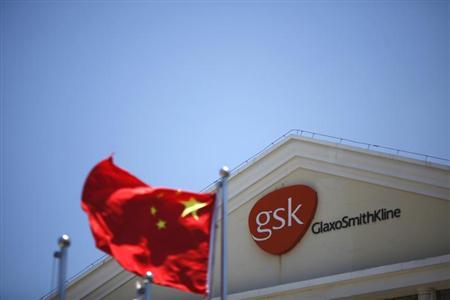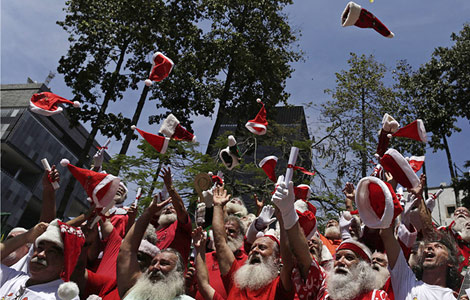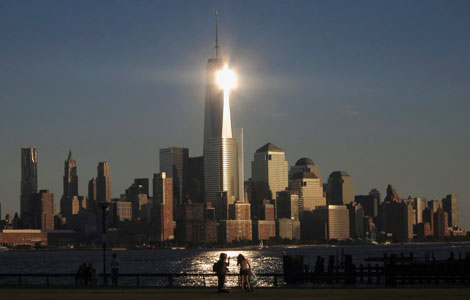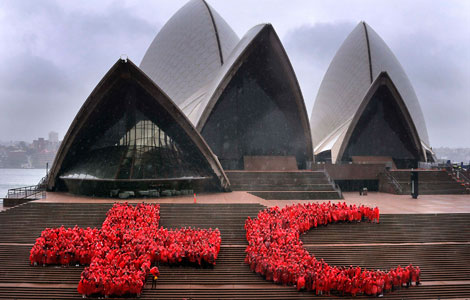

GlaxoSmithKline's sales in China may have dropped 30 percent since authorities accused it of corruption, disrupting its ability to market medicines in the country, according to analyst estimates.
Citigroup said initial feedback following the accusations against GSK and investigations into other firms suggested that sales of some multinational drug companies were down as much as 30 percent or more in volume terms since June.
|
 A Chinese national flag flutters in front of a GlaxoSmithKline (GSK) office building in Shanghai July 12, 2013. [Photo / Agencies] |
Industry insiders told Reuters last week that GSK, which is at the center of the furor, had suffered more damage than its peers as many Chinese hospital doctors refuse to see sales staff and promotional activities are curtailed.
GSK has said some of its senior Chinese executives appeared to have broken the law after police accused it of funneling up to 3 billion yuan ($490 million) to travel agencies to facilitate bribes to doctors to boost sales of its medicines.
Britain's biggest drugmaker has declined to detail the impact of the scandal on its business but a spokesman said the company was seeing "some impact" as a result of the ongoing Chinese investigations.
GSK generated a modest 3.6 percent of its global drug sales in China last year but sees the country as an important source of future revenue.
Citigroup said in a research note dated Sept 17 that multinational drugmakers might need to review current sales models, which rely heavily on expanding large sales forces, and could face pricing pressure on their off-patent drugs.







